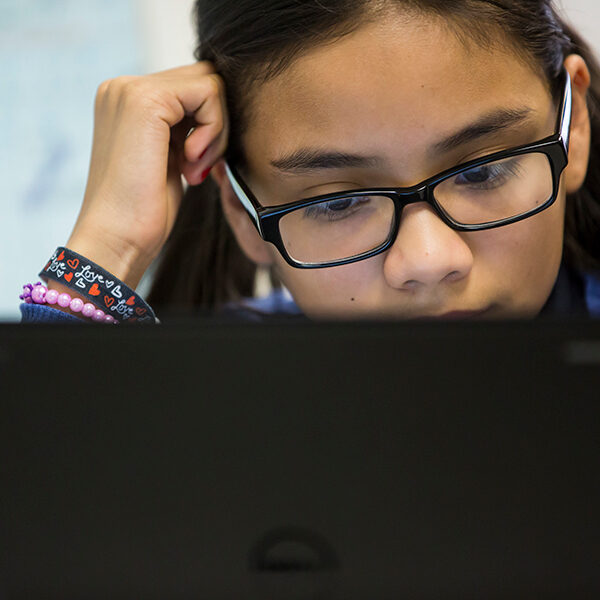
The subject of passion projects in the workplace elicits mixed feelings among employers and employees. The concept gained momentum when Google created its “20% time” idea, providing employees the opportunity to spend 20% of their time focused on passion projects. While many companies have followed suit and adopted their own form of passion projects, the idea is not without its critiques. One of the main concerns is a lack of empowerment for employees to actually use this allocated time appropriately, especially when balanced against the competing interests of the company’s bottom line. However, I believe passion projects can bring value to companies and I experienced this first hand when our team at The Learning Accelerator tested Deeper Learning Week, an initiative that aimed to maximize the value of this type of work while minimizing many of the pitfalls.
Deeper Learning Week was a week during which employees focused on an interest outside their normal scope of work. While our team is comprised of socially-minded individuals who are strongly aligned with our mission, the reality is that our day-to-day work never fully aligns with our strongest interests (nor should it). The week was designed so we could explore new concepts and working styles, providing us with protected time to pursue a passion, reflect on our pursuits, and determine the value of future work in each of our initiatives. The energy and excitement during the week was palpable, and I felt a stronger connection to our organization for allowing us to explore areas of interest and opportunity.
While Deeper Learning Week came with a cost, its benefit is clear. Dedicating a full week of staff time to projects that don’t directly align with our work may raise the eyebrows of more than a few accountants, but the idea has merits well beyond dollars and cents. The Learning Accelerator is dedicated to innovation, which is simply defined as new ideas or creating new things. Passion projects established time for our team to pursue innovations and helped contribute to the creative process that is critical to pursuing them. One aspect that I found interesting is the parallel between our Deeper Learning Week and the work of educators shifting their instructional practice in that the structure we used to approach our passion projects made all the difference. Because our organization is a virtual one, many of the practices we implemented during Deeper Learning Week mirror those of promising practices in blended and personalized learning. The goal of these practices was to ensure that we had the structure and support we needed to be successful, while also having the independence to pursue the most relevant scope of learning for each individual. They include:
- Independent Learning Time – I have no doubt that all of my teammates enjoy and pursue learning, but finding space in our schedules for a learning endeavor that requires a large time commitment can be a struggle. This seems to be a pitfall many Google employees fell into. By setting aside a full week where we all pursued this together, we gave ourselves permission to focus on additional areas of need and interest. This approach reminds me of schools that create additional time for individualized learning, both for acquisition of core content and pursuit of interests.
- Creating a shared experience – Given we all live and work in different places and have different focuses for our work, creating shared experiences can be a challenge. Deeper Learning Week was a time where everyone was able to pursue something different in a similar way, and at the same time. This provided the opportunity for us to provide real-time sharing of information that others could immediately empathize with, including successes, challenges, and problem solving. It struck me as a similar effort to Advisory classes offered by blended and personalized schools, which create shared experiences for students who are often pursuing individualized courses of study.
- Accountability Partners – While each team member got to pursue their own topic of interest, they were also paired with another team member as their accountability partner. Partners checked in at least twice throughout the week, sharing their plans and progress, and provided support for each other. Team members could choose their partner and partners could volunteer, allowing for more choice and alignment of interest with others’ independent work. In the blended setting, Lovett Elementary also uses accountability partners to help students meet their learning goals.
- Ad hoc Support – Traditional work requests were suspended during our Deeper Learning Week. We did, however, set up ways to communicate outside of the usual channels (such as GroupMe and text messages) in case individuals needed support. The work proceeded at a fast pace and many “discoveries” often changed the course of inquiry, or even the goals. It would have been impossible to forecast every need, so we set up structures to ensure team members could get support if a new need arose. There are a plethora of these structures in the blended setting, supporting students based on the class, instructional approach, and flexibility of resources available.
A connection can also be made between Deeper Learning Week and implementing blended and personalized practices. Our organization identified a need for improvement, researched possibilities, and planned and implemented a solution that we thought would best meet our needs. Like any new initiative, including the successful ones, we must now reflect and determine whether what we did is what we want to continue to do and, if so, if there are any ways we can improve upon it. I can’t say for sure what the next iteration will look like, but I believe that by taking this approach, we are increasing our organization’s potential for impact.

